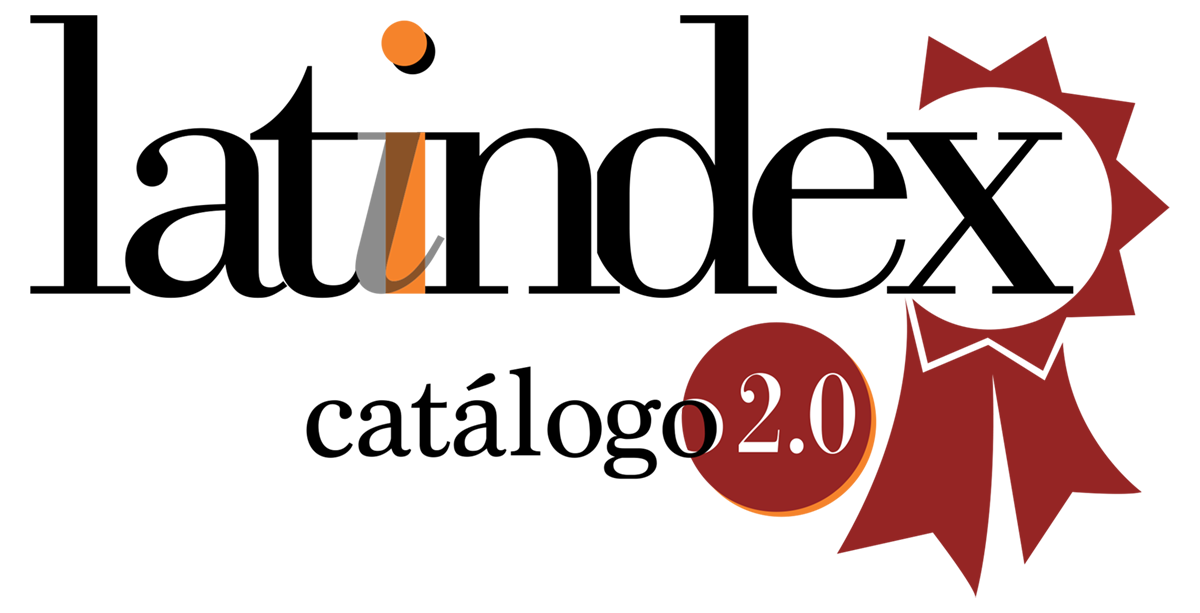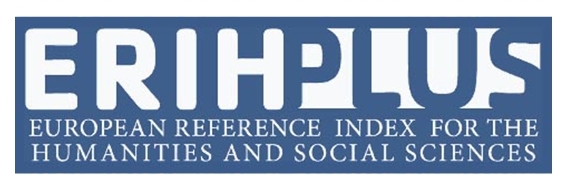Argentina after the Gender Identity Law
Self-Representations and Argumentation in Speeches by LGBTTI+ Organizations
DOI:
https://doi.org/10.24215/24690333e038Keywords:
discourses, argumentation, LGBTTI , gender identityAbstract
Despite the fact that in Argentina the Gender Identity Law is nine years old, it has not yet been possible to guarantee real social equality for the trans-transvestite community. This work analyzes the arguments of the main LGBTTI+ organizations in speeches in which they seek to account for this reality and justify the need to continue fighting for true inclusion. For this, we study how the construction of the ethos of each agent is articulated with other components of their argumentation to achieve an effective discourse.
Downloads
References
Amossy, R. (2018). La presentación de sí. Ethos e identidad verbal. Ciudad Autónoma de Buenos Aires: Prometeo.
Baczko, B. (1991). Los imaginarios sociales. Ciudad Autónoma de Buenos Aires, Argentina: Nueva Visión.
Barthes, R. (1974). Investigaciones retóricas I. Ciudad Autónoma de Buenos Aires, Argentina: Tiempo Contemporáneo.
Bourdieu, P. (1985). ¿Qué significa hablar? La economía de los intercambios lingüísticos. Madrid, España: Akal.
Chouliaraki, L. y Fairclough, N. (1999). Discourse in Late Modernity. Rethinking Critical Discourse Analysis. Edimburgo, Escocia: Edinburgh University Press.
Dijk, T. van (2003). La multidisciplinariedad del análisis crítico del discurso: un alegato a favor de la diversidad. En R. Wodak y M. Meyer (Comps.), Métodos de análisis crítico del discurso (pp. 143-177) (Trad. de Tomás Fernández Aúz y Beatriz Eguibar). Barcelona, España: Gedisa.
Eemeren, F. van y Grootendorst, R. (2002). Argumentación, comunicación y falacias. Una perspectiva pragmadialéctica (Trad. de Celso López S. y Ana María Vicuña N.). Santiago de Chile, Chile: Universidad Católica de Chile.
Eemeren, F. van, Grootendorst, R. y Snoeck Henkemans, F. (2006). Argumentación. Análisis, evaluación y presentación (Trad. de Roberto Marafioti). Ciudad Autónoma de Buenos Aires, Argentina: Biblos.
Fairclough, N. (1992). Discourse and Social Change. Cambridge, Inglaterra: Blackwell Publishers.
Farji Neer, A. (2017). Travestismo, transexualidad y transgeneridad en los discursos del Estado argentino. Desde los Edictos Policiales hasta la Ley de Identidad de Género (Tesis de maestría). Recuperado de https://www.academia.edu/35212581/Travestismo_Transexualidad_y_Transgeneridad_en_Los_discursos_del_Estado_argentino._Desde_los_Edictos_Policiales_hasta_la_Ley_de_Identidad_de_G%C3%A9nero
Jäger, S. (2003). Discurso y conocimiento: aspectos teóricos y metodológicos de la crítica del discurso y del análisis de dispositivos. En R. Wodak y M. Meyer (Comps.), Métodos de análisis crítico del discurso (pp. 61-100) (Trad. de Tomás Fernández Aúz y Beatriz Eguibar). Barcelona, España: Gedisa.
Habermas, J. (1981). Historia y crítica de la opinión pública. La transformación estructural de la vida pública (Trad. de Antoni Domènech). Barcelona, España: Gustavo Gili.
Ley Nacional 26.618 (2010). Matrimonio civil. Boletín Oficial de la República Argentina, 22/07/2010. Recuperado de http://servicios.infoleg.gob.ar/infolegInternet/verNorma.do?id=169608
Ley Nacional 26.743 (2012). Identidad de género. Boletín Oficial de la República Argentina, 23/05/2012. Recuperado de http://servicios.infoleg.gob.ar/infolegInternet/verNorma.do?id=197860
Leeuwen, T. van (1993). Genre and Field in Critical Discourse Analysis. Discourse and Society, 4(2), 193-223 Recuperado de https://www.jstor.org/stable/42888775?seq=1
Meyer, M. (2003). Entre la teoría, el método y la política. La ubicación de los enfoques relacionados con el ACD. En R. Wodak y M. Meyer (Comps.), Métodos de análisis crítico del discurso (pp. 35-59) (Trad. de Tomás Fernández Aúz y Beatriz Eguibar). Barcelona, España: Gedisa.
Maingueneau, D. (2010). El enunciador encarnado. La problemática del ethos. Versión. Estudios de comunicación y política, (24). Recuperado de https://versionojs.xoc.uam.mx/index.php/version/article/view/381
Manca, M. E. (2020). Nos casamos ¿y qué? Las autorrepresentaciones de la comunidad LGBTTI+ a 10 años la Ley de Matrimonio Igualitario. Argus-a, IX(36). Recuperado de https://www.argusa.com/publicacion/1481-nos-casamos-y-que-lasautorrepresentaciones-de-la-comunidad-lgbtti-a-10-anos-la-ley-dematrimonio-igualitario.html
Moragas, F., Mogaburo, Y. y Pérez, S. I. (2016). Discursos, géneros y medios. Notas metodológicas para el estudio de la construcción discursiva de los estereotipos y las identidades genéricas. En M. Carrario, A. Boschetti, M. Flores y G. Fanese (Comps.), Mirar el mundo desde el género. Historia y estudios. Neuquén, Argentina: Educo.
Moreno, A. (2008). La invisibilidad como injusticia. Estrategias del movimiento de la diversidad sexual. En M. Pecheny, C. Figari y D. Jones (Comps.), Todo sexo es Político. Estudios de las sexualidades en Argentina (pp. 217-243). Ciudad Autónoma de Buenos Aires, Argentina: Libros del Zorzal.
Perelman, C. (1997). El imperio retórico. Retórica y argumentación. Bogotá, Colombia: Norma.
Perelman, C. y Olbrechts-Tyteca, L. (1989). Tratado de la argumentación (Trad. de Julia Sevilla Muñoz). Madrid, España: Gredos.
Raiter, A., Zullo, J. y Sánchez, K. (2001). Representaciones sociales. Ciudad Autónoma de Buenos Aires, Argentina: Eudeba.
Saldivia, L. (2014). Contexto y originalidad del derecho a la identidad de género en Argentina. SELA (Seminario en Latinoamérica de Teoría Constitucional y Política) Papers, (147). Recuperado de https://digitalcommons.law.yale.edu/yls_sela/147
Vespucci, G. (2017). Homosexualidad, familia y reivindicaciones. De la liberación sexual al matrimonio igualitario. Ciudad Autónoma de Buenos Aires: UNSAM Edita.
Verón, E. (1987). El discurso político. Ciudad Autónoma de Buenos Aires, Argentina: Hachette.
Wayar, M. (2018). Travesti. Una teoría lo suficientemente buena. Ciudad Autónoma de Buenos Aires, Argentina: Muchas Nueces.
Downloads
Additional Files
Published
How to Cite
Issue
Section
License
Copyright (c) 2021 María Eugenia Manca

This work is licensed under a Creative Commons Attribution-NonCommercial-ShareAlike 4.0 International License.
Current policy since 2019
The acceptance of an original by the journal implies the non-exclusive transfer of the patrimonial rights of the authors in favor of the publisher, who allows the reuse, after its edition (postprint), under a Creative Commons License Attribution-NonCommercial-ShareAlike 4.0 International.
According to these terms, the material can be shared (copy and redistribute in any medium or format) and adapted (remix, transform and create another work from the material), provided that a) the authorship and the original source of their publication (magazine and URL of the work) are cited, b) is not used for commercial purposes and c) the same terms of the license are maintained.
The assignment of non-exclusive rights implies that after postprint in Con X authors may publish their work in any language, media and format; in that case, it is requested that they signal that the material was originally published by this journal.
Assignment also entails the authors’ authorization for the work to be collected by SEDICI, the institutional repository of the Universidad Nacional de La Plata, and for it to be indexed in the databases that the publisher thinks appropriate for enhancing the visibility of the published work and its authors.
In addition, the journal encourages authors to submit their works to other institutional and thematic repositories after their publication in Con X, under the assumption that offering society unrestricted access to scientific and academic production contributes to a greater exchange in global knowledge.








.jpg)

.png)



.png)





















